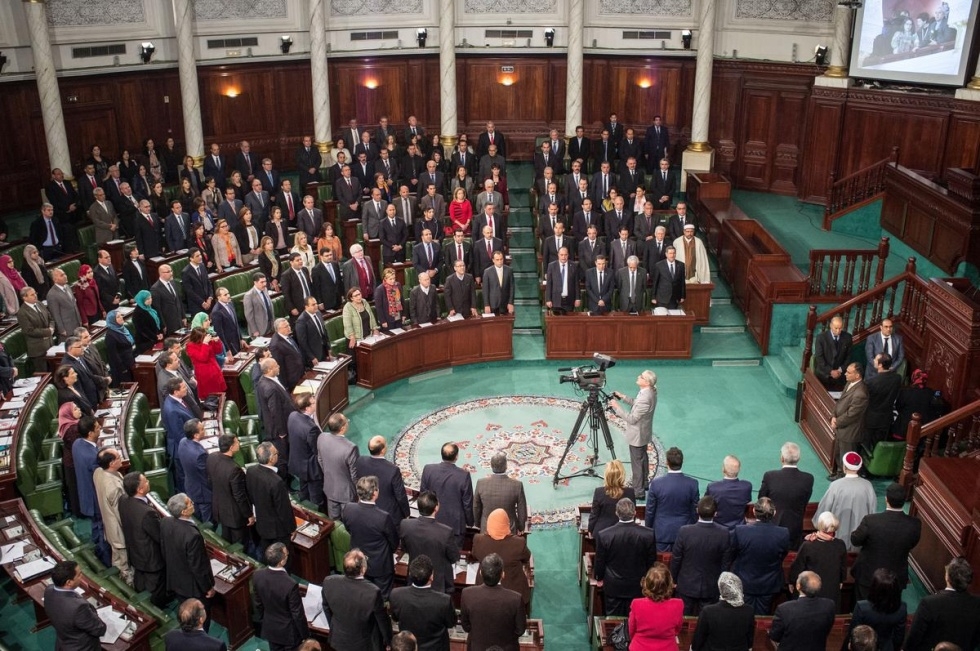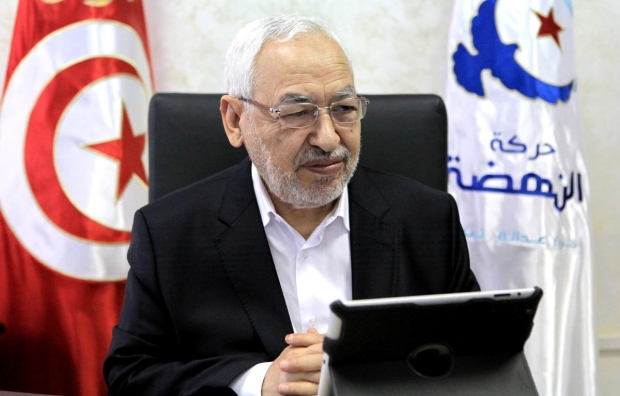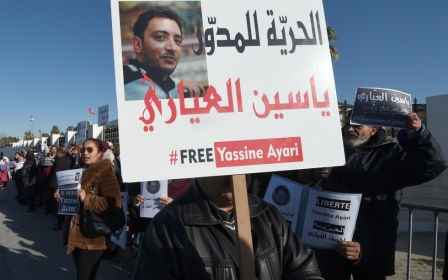Tunisia parliament endorses coalition government

Tunisia's parliament on Thursday approved a coalition government led by the secular Nidaa Tounes party and including Islamist rivals Ennahda, following landmark elections in the birthplace of the Arab Spring.
Of 204 lawmakers present, the vote was a comfortable 166-30, with eight abstentions.
"The motto of this government will be work, then work... and nothing other than work," pledged Prime Minister Habib Essid, an independent.
It comes four years after the overthrow of longtime dictator Zine El Abidine Ben Ali in 2011 in a revolution that spread to many parts of the Arab world.
Nidaa Tounes, which won October's election, holds six portfolios including the foreign ministry, while the interior, defence and justice portfolios go to independents.
Ennahda takes the labour ministry and three secretary of state posts.
"With just one ministerial seat and three secretarial posts, Ennahda’s participation will be mainly symbolic," wrote Monica Marks in the Washington Post.
"This symbolic inclusivity, however, is highly important to Ennahda’s leadership and base, which have feared a return to the exclusionary crackdown of the Ben Ali years, particularly in light of the regional crackdown on the Muslim Brotherhood following Egypt’s July 3, 2013 ouster of former president Mohamed Morsi," she added.
'Important step toward inclusivity and stability'
"Overall, however, this coalition represents an important step toward inclusivity and stability at a fragile moment for Tunisia’s transition," Marks concluded.
Essid announced the cabinet on Monday after dropping his initial team when Ennahda, which came second to Nidaa Tounes in the election, warned it would vote against any line-up that excluded it.
President Beji Caid Essebsi's Nidaa Tounes won 86 of parliament's 217 seats, while Ennahda secured 69.
Along with two other parties, the government has a commanding majority of 179 seats.
Essid, a senior bureaucrat under Ben Ali before becoming interior minister in the first post-revolution government, also held top positions under an interim coalition led by Ennahda until early last year.
He said on Wednesday the government's "top priority... will be one of providing security and the battle against terrorism".
In this vein, he insisted on the need to "expedite the passage of an anti-terrorist law" which has been delayed for months.
Also, the economy remains sluggish and unemployment is stubbornly high, especially among young people.
Essebsi has vowed to address economic problems to "realise the promises of the revolution: dignity, employment, health and regional equality."
'Success story'
The premier pointed out that the cabinet is comprised of people from all over the country, and said ministers would soon be fanning out into the provinces, some of which complain of having been long neglected by the central government.
The Free Patriotic Union party - headed by football club magnate and former presidential hopeful Slim Riahi, the liberal Afek Tounes – which holds eight seats in Parliament - and the National Salvation Front, are also represented in the government.
Voting against the cabinet was the leftist Popular Front coalition - which holds 15 seats in Parliament - saying it opposed the presence of Ennahda in the government.
Interim premier Mehdi Jomaa is to formally hand over power to Essid on Friday.
The democratic transition is viewed as a success story, especially when compared to what took place in Egypt, because "all sides had no choice but to settle for democracy," one analyst said.
"In Tunisia, by contrast [to Egypt], the opposition realised after months of protest that there would be no judiciary or military to come to its aid," wrote Sharan Grewal in the Washington Post.
"Ultimately, it realised that it had to back down on its demand for the dissolution of the constituent assembly and instead negotiate with Ennahda on the way forward," added Grewal.
New MEE newsletter: Jerusalem Dispatch
Sign up to get the latest insights and analysis on Israel-Palestine, alongside Turkey Unpacked and other MEE newsletters
Middle East Eye delivers independent and unrivalled coverage and analysis of the Middle East, North Africa and beyond. To learn more about republishing this content and the associated fees, please fill out this form. More about MEE can be found here.





